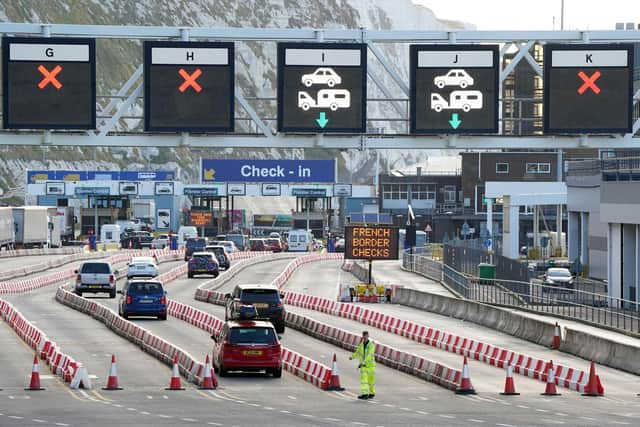How Yorkshire importers must get ready for customs duty change from October 1 - Lyndon Firth
The introduction of the Customs Declaration Service (CDS) is a significant move for any Yorkshire business that imports into the UK. Let’s not underestimate its importance – if you don’t register for the new system by October 1, there’s a real risk that your goods will not be able to enter the UK.
Submitting import declarations from that date must be done via the new system, in order to continue bringing goods into the country.
Advertisement
Hide AdAdvertisement
Hide AdThe message is clear from HMRC, and regional businesses have taken heed and registered for the new CDS. According to BDO’s latest Rethinking the Economy survey of 500 mid-sized businesses, 48 per cent of Yorkshire companies affected by the change have registered and authorised their freight agents within the new CDS.


However, they admit that more work still needs to be done before the changeover takes place in less than two months.
The reality is this is more than just a simple tick box exercise; registering for the new CDS is simply not enough – it requires a deeper understanding of current customs duty processes and practices and any adjustments that might need to be made to comply with the changes.
HMRC has made its position clear and set out a number of actions, which include making sure you have an EORI number, registering and activating a Government Gateway account, registering and activating your Customs Declaration Service account, deciding upon and registering your payment method and details on CDS, nominating your freight forwarder(s)/customs broker(s) in CDS and checking that your tax and logistics teams are ready for the changes to issue new broker instructions with the increased CDS data set.
Advertisement
Hide AdAdvertisement
Hide AdBut this is just the beginning. The changes bring with them a number of considerations that the CHIEF system simply didn’t warrant.
The piece of software, which has been talked about in customs circles for many years, will scrutinise in far more detail the activity of each and every one of the 150,000 UK importers.
New data fields in the CDS will result in HMRC having access to more information about a company’s approach to customs valuation than ever before – data that will ultimately feed into any future compliance audits.
There’s no doubt that HMRC has taken its foot off the gas in recent years, in terms of compliance audits; however, the introduction of the new CDS is likely to invigorate the tax authority and provide significant ammunition in its assault against those companies falling foul of customs regulations.
Advertisement
Hide AdAdvertisement
Hide AdSignificant penalties for not doing so are unlikely, due to the nature of how customs civil penalties are applied, but the result of not keeping appropriate records and requesting certificates of origin from suppliers on day one could mean assessments for back-dated customs duty which can have a significant effect on a business’s profit margin.
Lyndon Firth is an Indirect Tax partner at BDO LLP in Leeds.